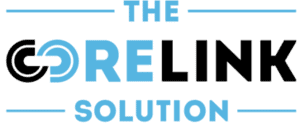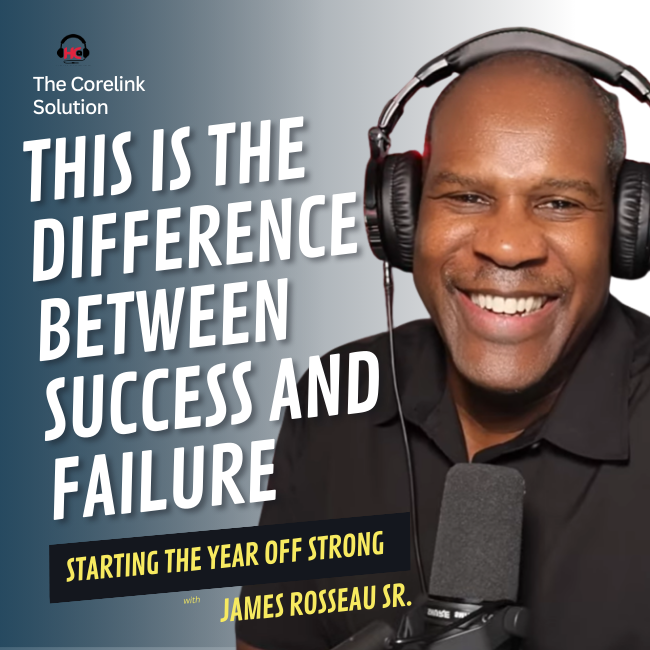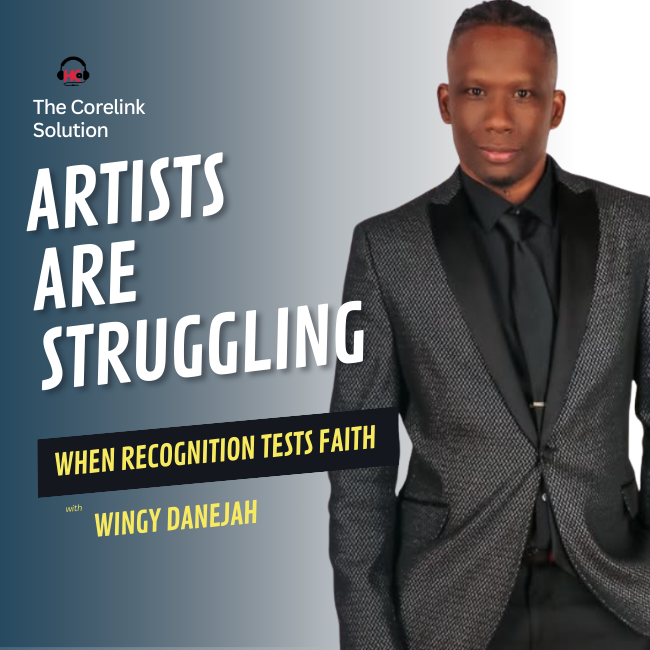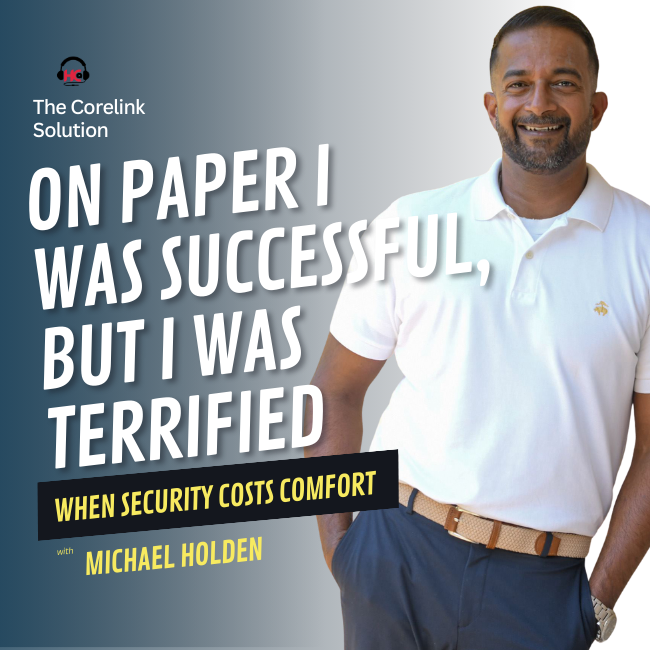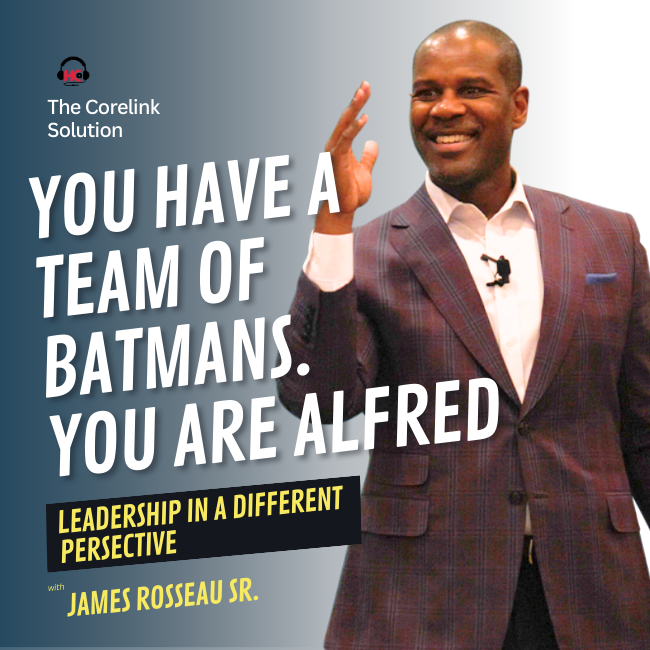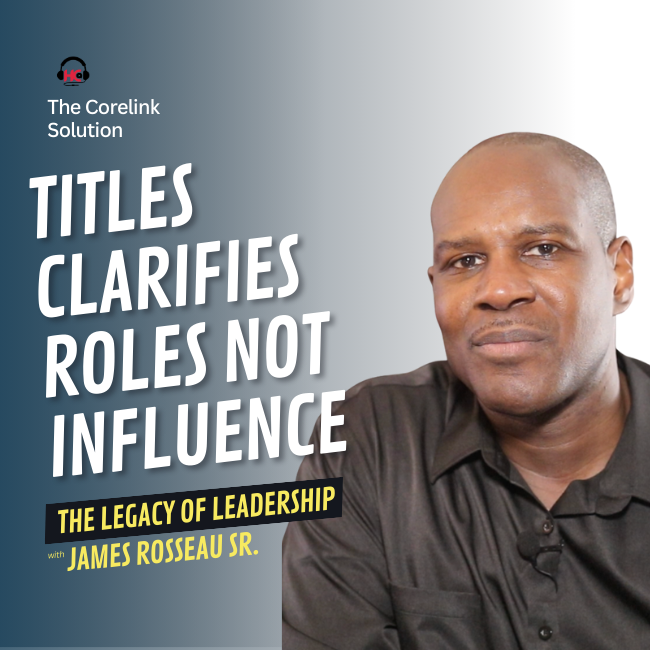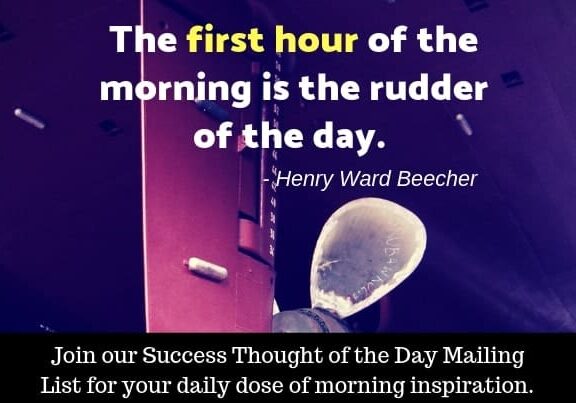Episode 110: No Regrets: Planning for a Life-Altering Career Transition
Subscribe: iTunes | IHeartRadio | Spotify | Stitcher
As we approach the end of the year, it’s natural to take a moment to reflect on where we are in life and whether we’re where we want to be. With that in mind, this episode of The Corelink Solution is all about planning for major career transitions, by using the regret minimization framework.
Understanding Life Backwards, Living it Forwards
I kick off the conversation with a profound quote from Soren Kierkegaard, “Life can only be understood backwards but must be lived forwards.” This quote encapsulates the essence of our discussion – the importance of reflection and forward planning.
I introduce the concept of the regret minimization framework. This involves contemplating what we would regret more: trying to build something we believe in and failing or failing to give it a try. It’s a powerful tool that encourages us to take risks and pursue our passions.
No Regrets: The Jeff Bezos Story
To illustrate this concept, I share the story of Jeff Bezos, the founder of Amazon. Bezos faced resistance when he wanted to start selling books online. However, he used the regret minimization framework to make his decision. He asked himself what he would regret more at 80 years old – not trying or failing? This story is inspiration for us to consider our own convictions and goals.
Asking the Right Questions
I am not providing answers but rather posing questions for us to ponder. I encourage folks to write down the reasons for wanting to make a change and to crystallize our motivations. I also suggest considering whether there is a way to transition into a career or life path that truly excites us.
The Power of Planning for Transitions
I share a conversation I had with someone who was feeling drained and unhappy in their current job. When asked what work really gets them fired up, he revealed his passion for motorcycle repair. This revelation sparked a shift in his energy and demeanor. However, he admitted he hadn’t spent time planning a transition, which had been holding him back.
This underscores the importance of planning for a transition. I ask folks to consider when they might make a change and to draw out the steps needed to reach the desired outcome. I also encourage folks to think about the financial and logistical aspects of the transition, the impact on family, and any necessary education or development before taking the leap.
Wrapping Up: Making Desired Changes a Reality
In order to make our desired changes a reality, we must take action. As we begin the new year, let’s take some time to reflect on our goals, and plan for the transitions that will lead us to where we want to be. I’d love to hear your thoughts on the episode, please leave a comment. Thank you for tuning in and remember; be informed, be empowered and be accountable.
TIMECODE REFERENCES:
The regret minimization framework (00:01:51) Jeff Bezos’ regret minimization framework is discussed as a way to think about taking risks and pursuing one’s convictions.
Why do you want to make the change? (00:03:52) Listeners are encouraged to reflect on their motivations for seeking change and to write down their reasons for wanting to make a transition.
Is there a way to experience this new work without leaving your current job? (00:06:50) The idea of entrepreneurship within an existing organization is explored as a possible way to experience aspects of the desired new work without completely leaving one’s current job.
The transition to motorcycle repair (00:10:43) Host discusses a person who enjoys motorcycle repair and the potential transition from their current job in financial services.
The importance of planning for a transition (00:11:38) Host emphasizes the need for planning and asks what has been holding the person back from pursuing their passion for motorcycle repair.
The final point: When to make the change (00:12:43) Host discusses the importance of determining when to make the career change and suggests drawing up the necessary steps and considering financial, workflow, family, and education considerations.

